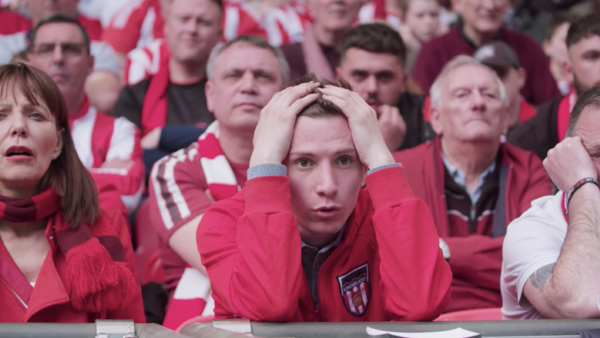Sunderland 'Til I Die Series 2 Review - 7 Ups & 5 Downs
3. Sharing Is Caring

Sunderland used to be known as 'The Caring Club' back before football became the ludicrous facade of a sport that exists today. Much of that version of SAFC was dissolved in line with the notion of giving a sh*t about someone disappearing from society writ large.
Society, and as is said often, community, is still the lifeblood of a club with barely-beating heart, but it forms part of a cycle. Sunderland had only been in the third tier of the English game once in their history, and it came eight years into a Conservative government that slashed much needed care, industry and financial aid to the North East of England doing the tumultuous 1980s. It took a decade to even partially repair the football wounds, whilst others may never heal. The pattern repeated itself in the 2010s, with the city even more divided by political gamesmanship that preyed on desperation and empty desire. There has been, paraphrasing Peter the taxi driver in the show, barely a "pot to p*ss in" for most people's lifetimes. It's hard to find positivity when the world seems to never even want to show you what it looks like.
There was a shortage of positivity in Season 1, but players Luke O'Nien, Jack Baldwin and Tom Flanagan all came across relatively well in spite of tremendous pressures placed upon them from themselves, the challenge of moving and raising family and shoppers in Tesco, respectively. Jack Ross was vibrant until his inexperience began to show, embracing the challenge as if to remind fans what they had in a club of such potential.
They were naive but sturdy, trying desperately drag the cart, without wanting to acknowledge that they were all being led by donkeys and mules. One of which came with quite the kick...